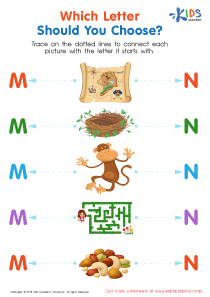Letter recognition Normal Lowercase/Small Letters Worksheets for Ages 5-7
10 filtered results
-
From - To
Boost your child's literacy skills with our "Letter Recognition Normal Lowercase/Small Letters Worksheets" designed for ages 5-7. These engaging worksheets are perfect for helping young learners identify, recognize, and practice writing lowercase letters. Ideal for kindergarten and early elementary school students, our worksheets offer fun, interactive exercises that reinforce letter shape recognition and writing fluency. Each worksheet is thoughtfully created to cater to the unique developmental needs of early readers, promoting confidence and mastery in the English alphabet. Enhance your child's educational journey with our expertly designed, easy-to-use resources today.
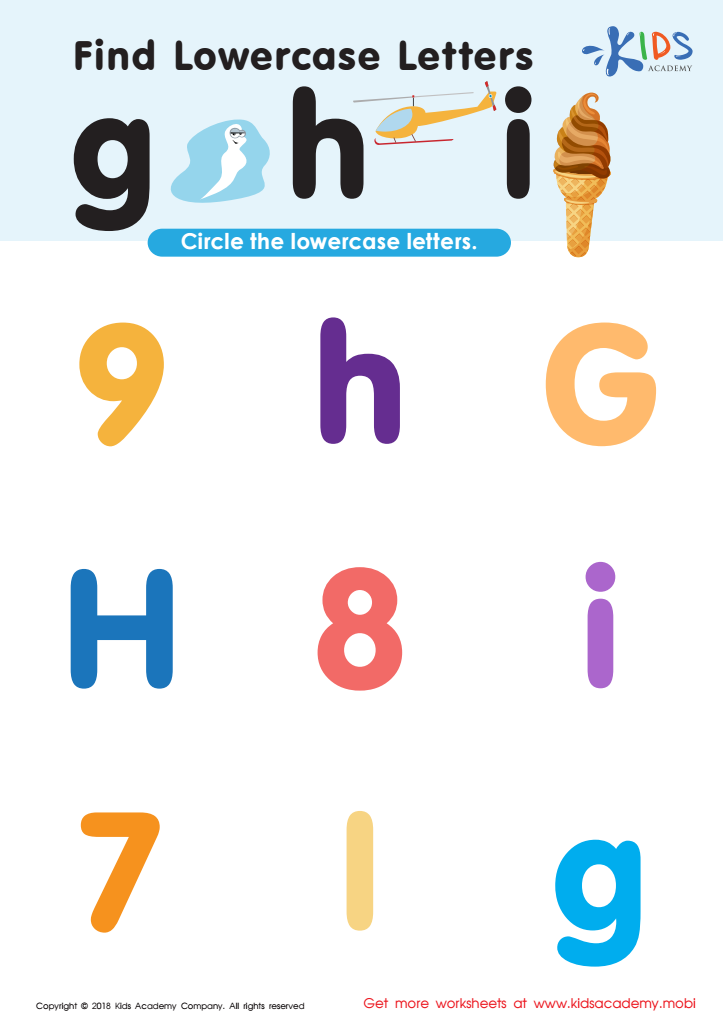

Find Lowercase Letters g h i Worksheet
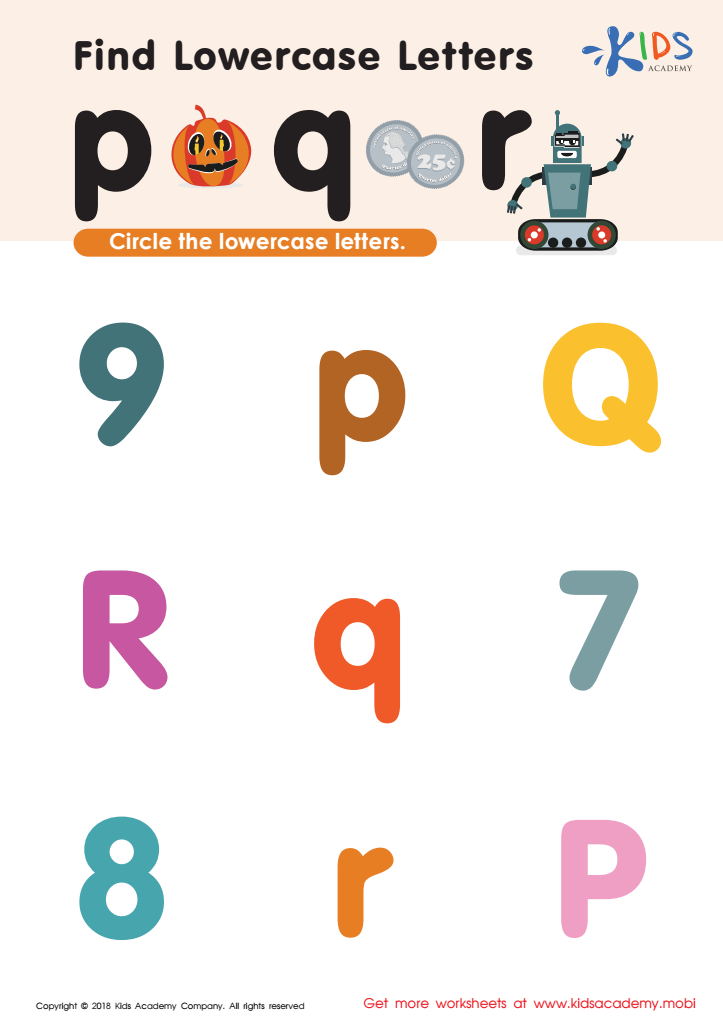

Find lowercase Letters p q r Worksheet
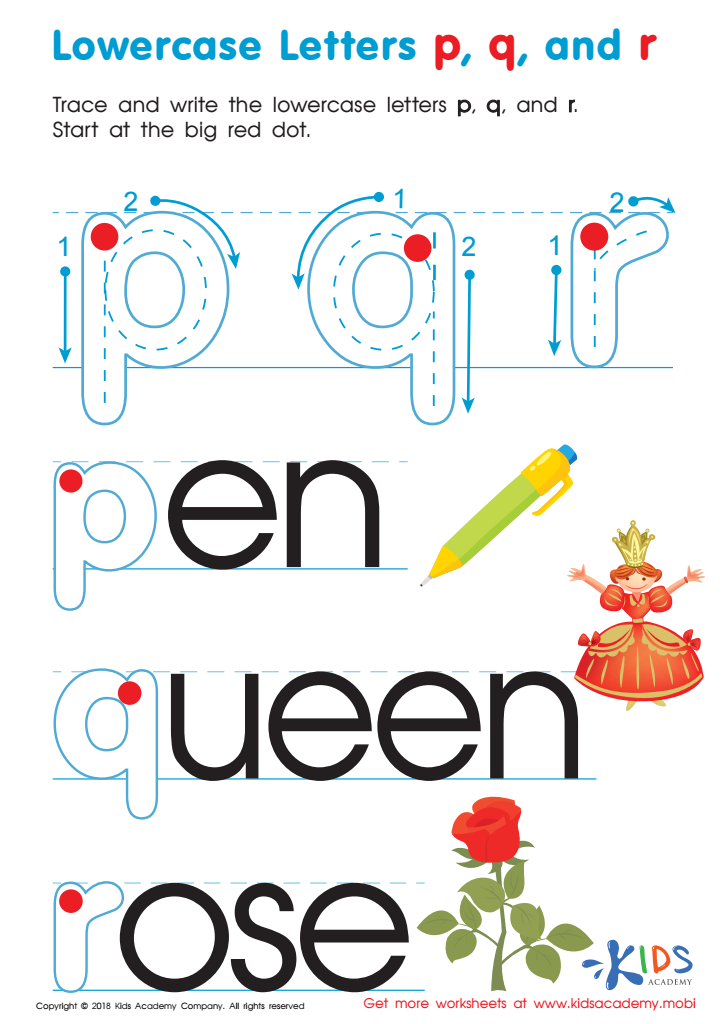

Lowercase Letters p q r Worksheet
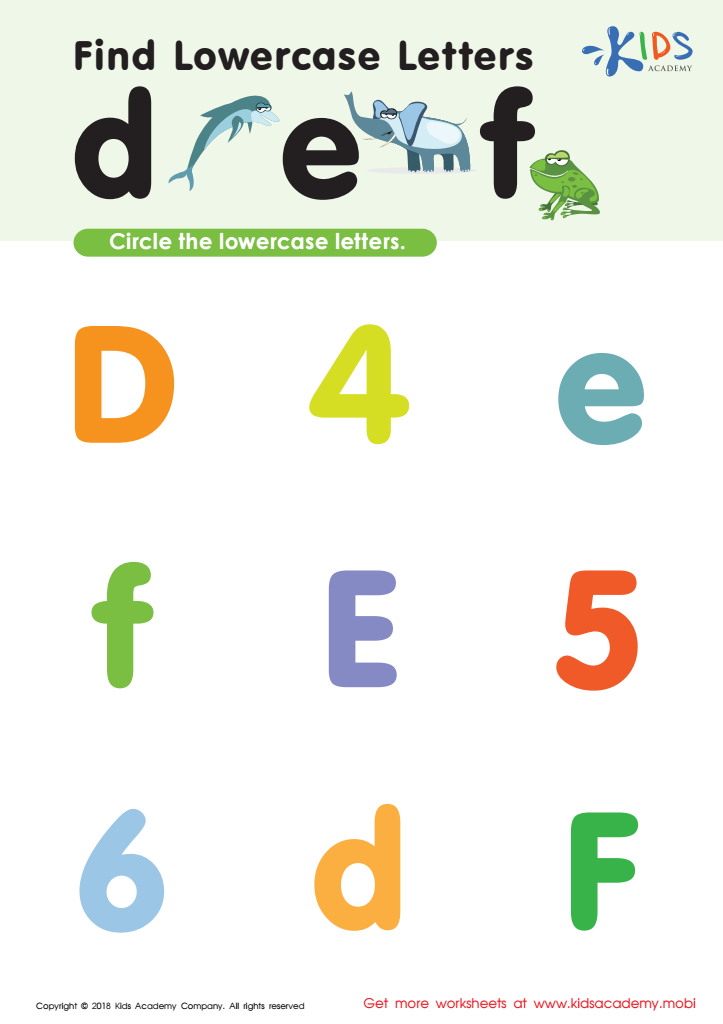

Find Lowercase Letters d e f Worksheet
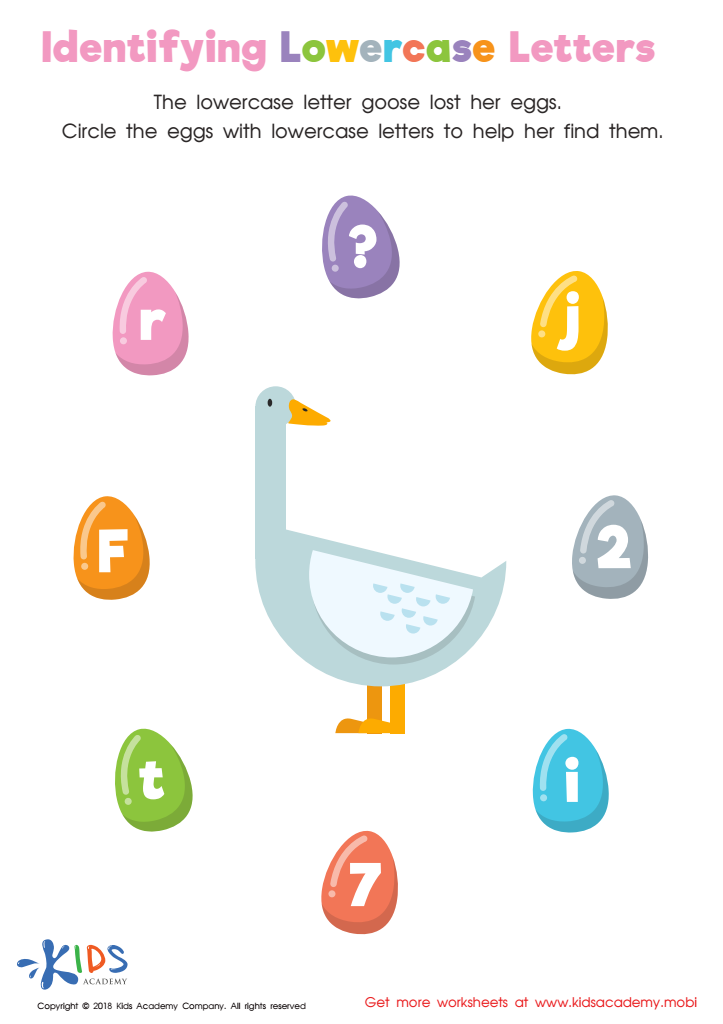

Identifying Lowercase Letters Worksheet
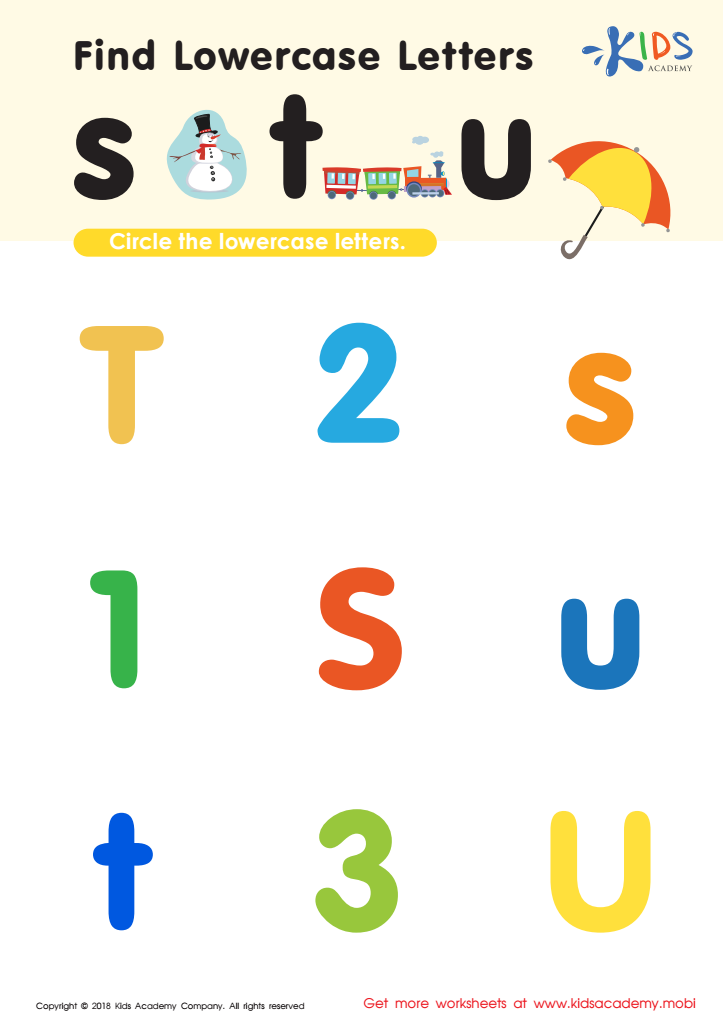

Find lowercase Letters s t u Worksheet
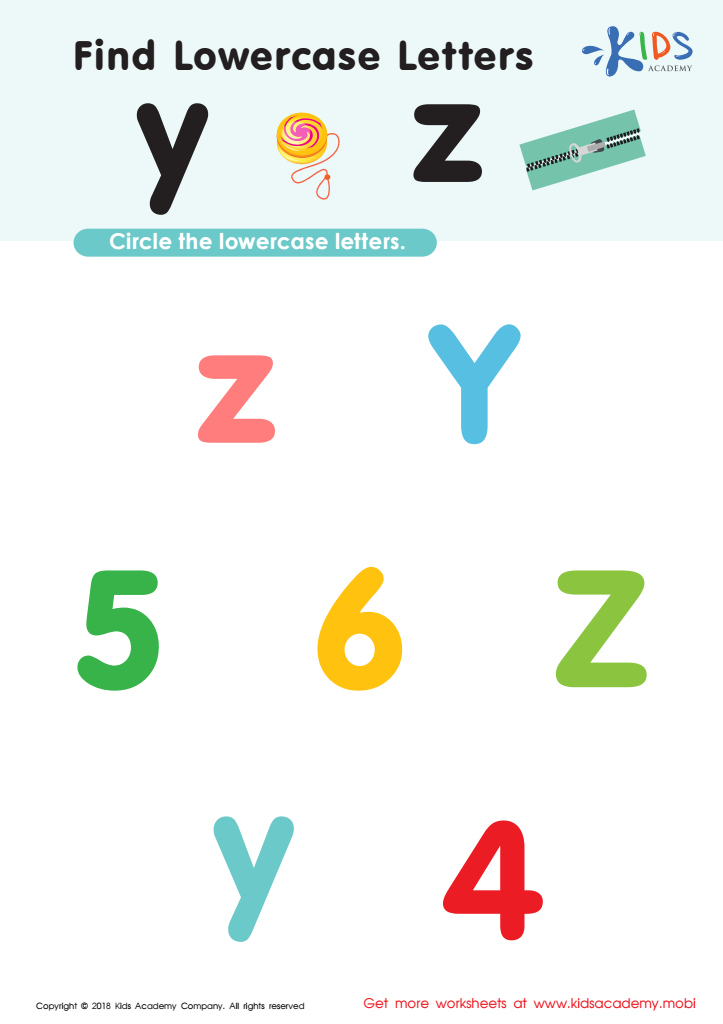

Find Lowercase Letters y z Worksheet
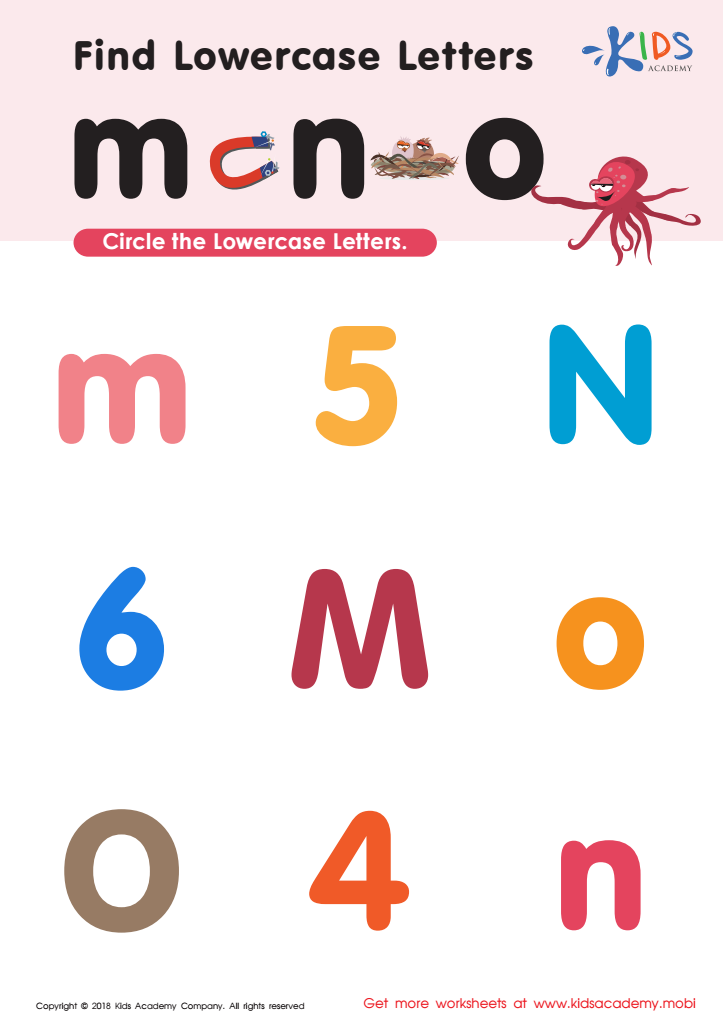

Find Lowercase Letters m n o Worksheet
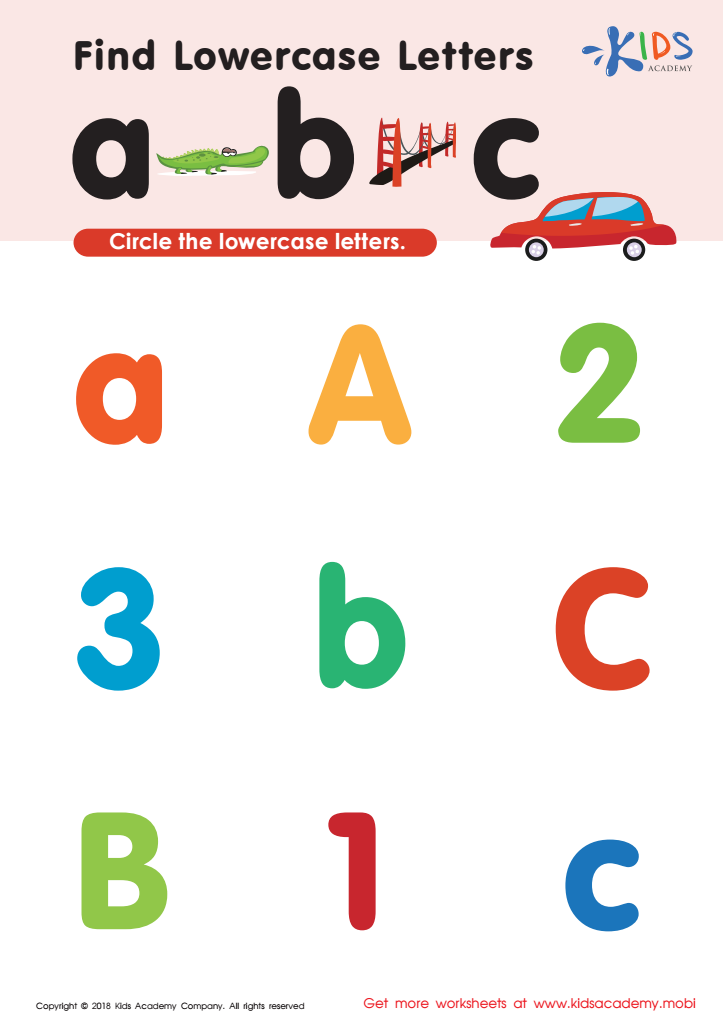

Find lowercase letters a b c Worksheet
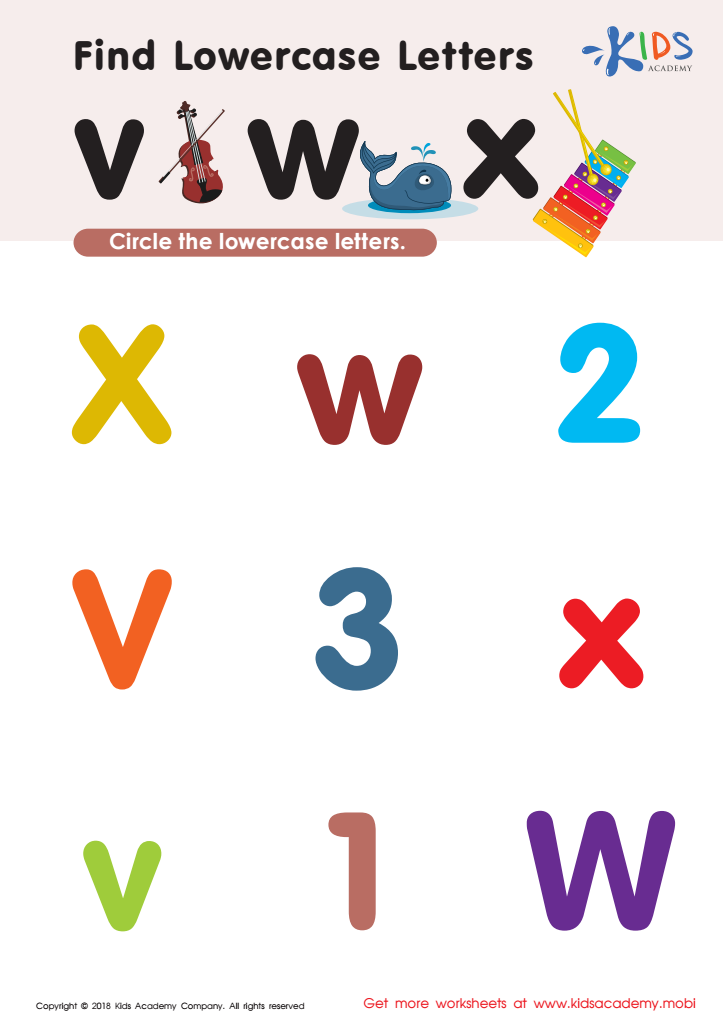

Find Lowercase Letters v w x Worksheet
Parents and teachers should prioritize letter recognition of normal lowercase (small) letters for children aged 5-7 because it serves as the foundation for reading and writing skills, essential for their overall academic success. At this crucial developmental stage, mastering lowercase letters is vital since these are predominantly used in written texts. This familiarity supports children in fluently reading sentences, comprehension, and engaging with different types of written instruction.
Early proficiency in lowercase letters aids in better differentiation between similar-looking pairs like 'b' and 'd'. It also strengthens their phonemic awareness—understanding the correlations between letters and sounds, which fosters effective decoding skills critical for reading fluently. When children see how individual letters form words, they start recognizing patterns, enabling them to infer meaning and expand their vocabulary intuitively.
Furthermore, solid letter recognition dramatically reduces the risk of academic struggles later. Struggles with basic reading can lead to frustration, lower self-esteem, and a dislike for learning. By ensuring children can readily identify lowercase letters, parents and teachers create a strong, confident start. This helps foster a love for reading, setting the stage for lifelong literacy and learning achievements. Consistent practice through engaging activities like tracing, reading stories, and letter games can make this process enjoyable and effective.
 Assign to My Students
Assign to My Students




